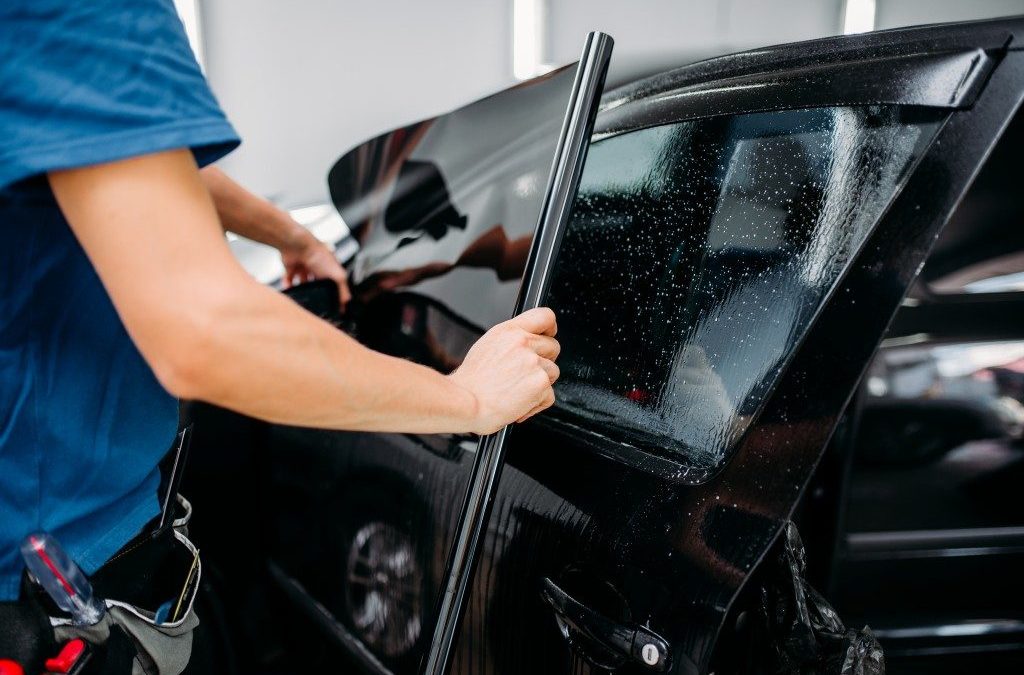THE ULTIMATE GUIDE OF CAR WINDOW TINT
Car window tinting is a popular aftermarket modification that provides various benefits such as privacy, UV protection, and temperature control.
In this ultimate guide, ceramic tinting we will cover everything you need to know about car window tinting, including the different types of window tint, the benefits, and the laws and regulations around tinting your car windows.
Types of Window Tint:
Window tinting films come in different types and levels of darkness. Here are the most common types:
Dyed window tint This type of tint is the most affordable and provides a basic level of heat and UV protection. It works by absorbing the sunlight through a layer of dye and reflecting it back out.
Metalized window tint This type of tint has a layer of metal that reflects heat and UV rays. It is more expensive than dyed tint but offers a higher level of protection.
Hybrid window tint:
This type of tint combines both dyed and metalized layers for better heat and UV protection. It is more expensive than the other two types but offers the best overall protection.
Benefits of Window Tint:
There are several benefits to having your car windows tinted:
PrivacyTinted windows provide a level of privacy, making it harder for people to see into your car.
UV protectionTinted windows block harmful UV rays, protecting your skin and preventing your car's interior from fading.
Heat reduction:
Tinted windows can reduce the heat inside your car, making it more comfortable and reducing the need for air conditioning.
Glare reduction Tinted windows can reduce glare from the sun, making it easier to see while driving.
Safety In the event of an accident, tinted windows can prevent glass from shattering and flying into the car.
Laws and Regulations:
Each state has its own laws and regulations regarding window tinting. Here are some general guidelines:
The front windshield is usually not allowed to be tinted, except for a small strip at the top:
The side windows and rear windshield can be tinted, but the level of darkness allowed varies by state. Check your state's laws before getting your windows tinted.
It is illegal to have red, blue, or amber tint on any window.
If you are pulled over for having illegal tint, you may be fined and asked to remove the tint.
Choosing a Window Tint Installer:
When choosing a window tint installer, there are a few things to keep in mind:
Look for a professional installer with experience and good reviews.
Ask to see samples of their work and the types of tint they offer.
Make sure they offer a warranty on their work and the tint.
Check if they are licensed and insured.
Get a written estimate and ask about any additional fees.
Maintaining Your Window Tint
To keep your window tint looking good and functioning properly, follow these tips:
Wait a few days after installation before rolling down your windows.
Clean the tint with a soft, non-abrasive cloth and a mild cleaning solution.
Avoid using ammonia-based cleaning products, which can damage the tint.
Don't use abrasive materials or scrub the tint:
Avoid rolling down the windows when it's raining or humid, as this can cause the tint to peel.
If you notice any bubbles tinting or peeling, contact your installer to have it fixed.
In conclusion, car window tinting is a great way to add privacy, UV protection, and temperature control to your car.
Be sure to check your state's laws and regulations before getting your windows tinted, and choose a professional installer with experience and good reviews. With proper maintenance, your window tint should last for years and provide many benefits to you and your car.

Comments
Post a Comment